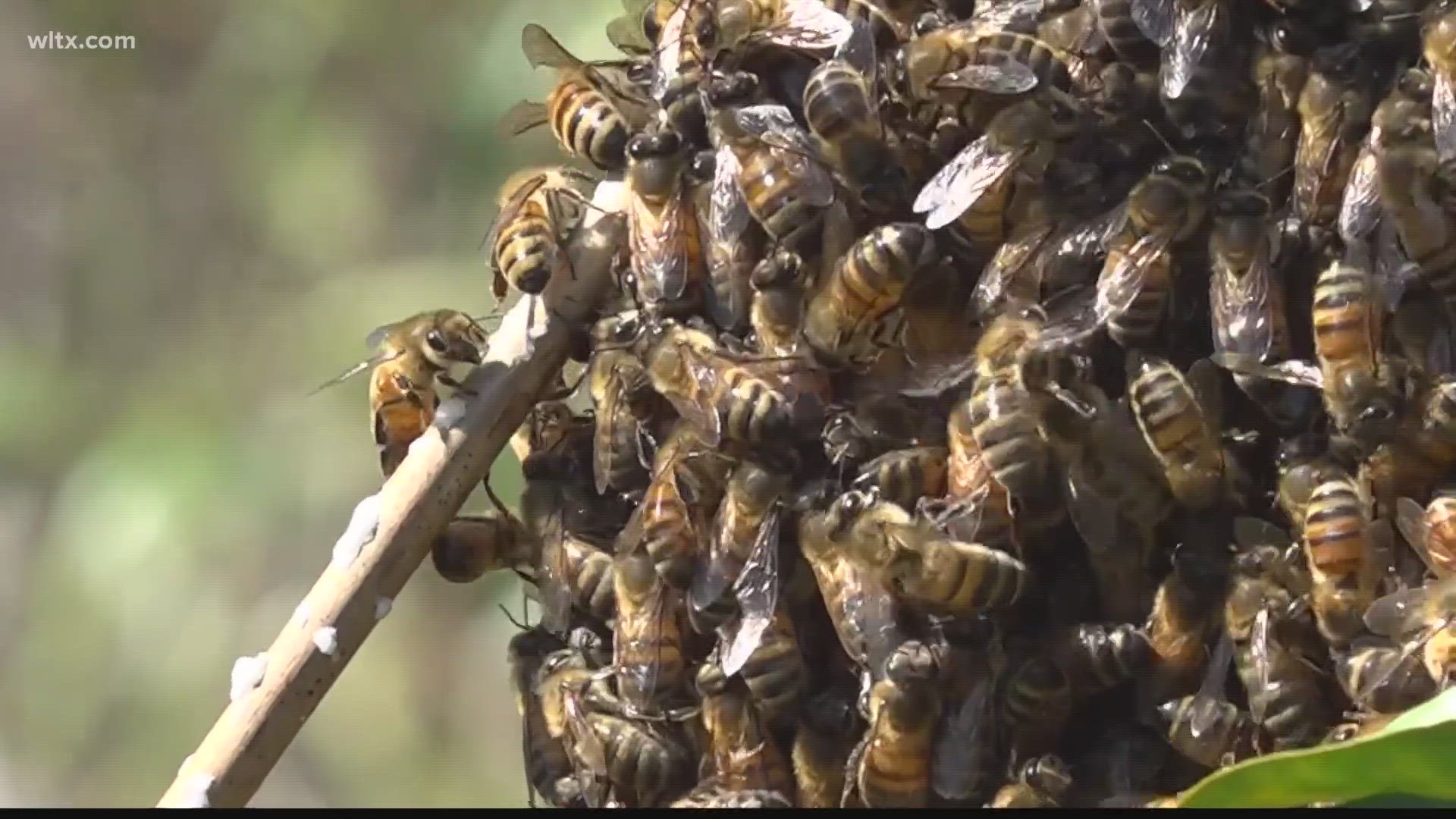SUMTER, S.C. — It’s swarm season, which means honey bees are out and about starting this month through May. While they’re populating, they might be trying to find a new home. Here with some tips on what you need to know if you come across a swarm.
"Bees, they do everything for us," beekeeper Paul Wise says. "And all we have to do is protect them the best we can."
That's what Wise and fellow beekeeper Tara Van Norman are trying to do year-round, but especially now that it’s swarm season.
"Swarm season’s just basically they’re outgrowing their environment, they're expanding, it's a good thing, it’s a natural thing," Van Norman explains.
That environment can be a traditional hive found in nature, or in wooden nucleus boxes that beekeepers maintain.
There are frames inside the boxes, where bees build combs. They fill it with wax and honey.
When the frames inside the nucleus boxes get to be a little bit too full, the bees leave and they go look for a new home.
"There’s about 30,000 bees in a hive and when they get overpopulated, they say, ‘Oh somebody’s gotta go," Wise explains.
The bees that leave the hive are the swarm. They settle in a temporary location while scout bees go to find a permanent hive. Wise says the swarm can be anywhere from the side of a building to a car to a bush in your backyard.
"If it’s a big cluster, I mean, they’re all stuck together," Wise explains. "If they’re all flying around, it’s not a swarm."
If you do see a swarm, Wise says you can call the Clemson Extension, which can send out a certified beekeeper to remove the swarm safely for free and transfer them to a safe environment.
"They provide a valuable resource to us, they pollinate our crops so we can eat, they produce honey for us which is the good thing," Wise lists. "They produce wax for us that people put in their makeup and everything else, and propolis, which is bee glue. People use that as tinctures, it’s an antiseptic "
"It’s just important to try and protect them as well as other pollinators, not just honey bees," Van Norman adds. "Other pollinators, they all have a purpose in nature and without them we wouldn’t have the food we have today."
Van Norman says the knowledge her and Wise have garnered over the past three years since becoming certified beekeepers comes from working with Dorr Farms and the Sumter County Bee Association.
If you do come across a swarm, Wise says to stay calm and call in the professionals if you want them removed. If not, he says they’ll likely leave in a few days once they figure out a permanent home.
"90% of the time when you get stung by honey bees it’s something you’ve done wrong," Wise says.
That includes messing with a hive or a swarm of bees while they're resting and waiting on the scout bees to return with a permanent home suggestion.
"If you see them, just leave them alone," Van Norman says. "Really, they’re not out to get you."
Those are honey bees, but also carpenter bees are out and about right now. Wise says they will drill holes into wood and lay eggs, so to remove them, you can treat your wood with citrus spray, almond oil or borate.
If you'd like to help out the honey bee population, Wise says it's beneficial to plant a variety of flowers with nectar, which the bees can feed off of.
"They work tirelessly for the mission of the hive. That’s all they care about is making sure the hive survives. There’s no selfishness," Wise says about what he admires about honey bees. "They get in there, they get to work, and they get it done."

